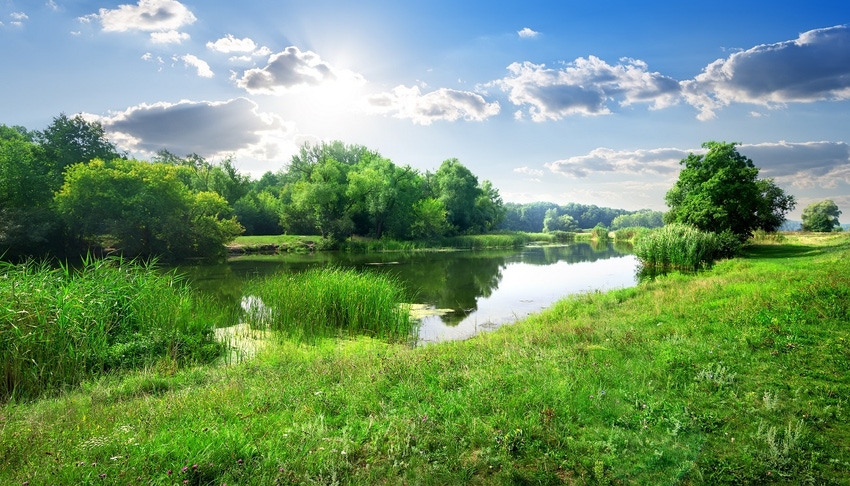April 17, 2019

By Leanne Trostel-Fuchs
Regardless of what names we use to describe water, none quite describe the critical importance of water to our lives here on earth.
Water. That five-letter word literally means survival. At the base level, something like 55-60% of the adult human body is water. It determines a huge percentage of plant growth. It is key to a living soil.
Yet this precious commodity and vital resource is being threatened now. It is being overused and abused. Is there a point of no return? Can we damage a resource to such an extent that it cannot recover? Well, of this I am not certain, but what I do know is that we can harm our resources so greatly that we are then put in a compromising situation. One not of enhanced survival but of meager existence. This is what is happening to our water sources. As the biggest user of water, agriculture should also be the keeper and even the collector of our world's water.
In many areas of the United States, our rivers, stream and aquifers have traces of prescription drugs, hormones, pesticides and other chemicals from industrial, personal and agricultural uses. Communities spend money to make it clean for consuming, but the residues either slip through, or slip by. Sometimes scientists find these residues and can't even quantify where they came from.
It has become clear to me we are no longer drinking clean and pure water that purely nourishes the body, but a mixture of drugs and poisons that detract from health. Most may not be aware that current treatment processes don’t remove pharmaceuticals or other medications such as hormones or antibiotics from drinking water.
Now I don’t know about you, but I don’t want to be drinking water that has prescription drugs or any chemicals in them. I don’t want to take, without my knowledge or consent "other people’s psychiatric medications." This should not be allowed to continue. But what can we do about it? Is there a solution?
We must start somewhere, so I'm starting with the agricultural industry, the number one consumer of water in the world. We all know we need food as well as water but keeping this water clean also falls under the responsibility of the main users. As I travel the state of Missouri in winter I am saddened to see the amount of bare land and soil.
Missouri has one of the best Soil and Water Conservation Districts in the nation, funded by a sales tax. They fund grazing systems, cover crop and other soil-protective practices. One of their main projects is terraces on highly erodible land. These practices are not cheap and are in high demand by producers. The question is, do these practices work? Do they save soil and help with overall water quality in our drinking water or does it allow land to be farmed that otherwise would not be suitable for row crops?
Soil without proper cover, imbedded roots and healthy soil aggregation will move when hit with rainfall. By comparison structures such as terraces only slow the movement of soil and do very little to stop the soil and nutrients from being washed away. It seems very strange to me that we would have a "practice" of building these terraces yet not require the simple principles of no-till and some kind of cover crops. Missouri has a big erosion problem which becomes a big water quality problem. I suggest that we truly fund programs that not only stop erosion but built soil for the future. I have learned from my husband Eric and others in the agricultural industry that these are actually profitable practices. Why not use them? Why not require them for anyone receiving any kind of government aid?
This seems a great starting place to me.
You May Also Like




